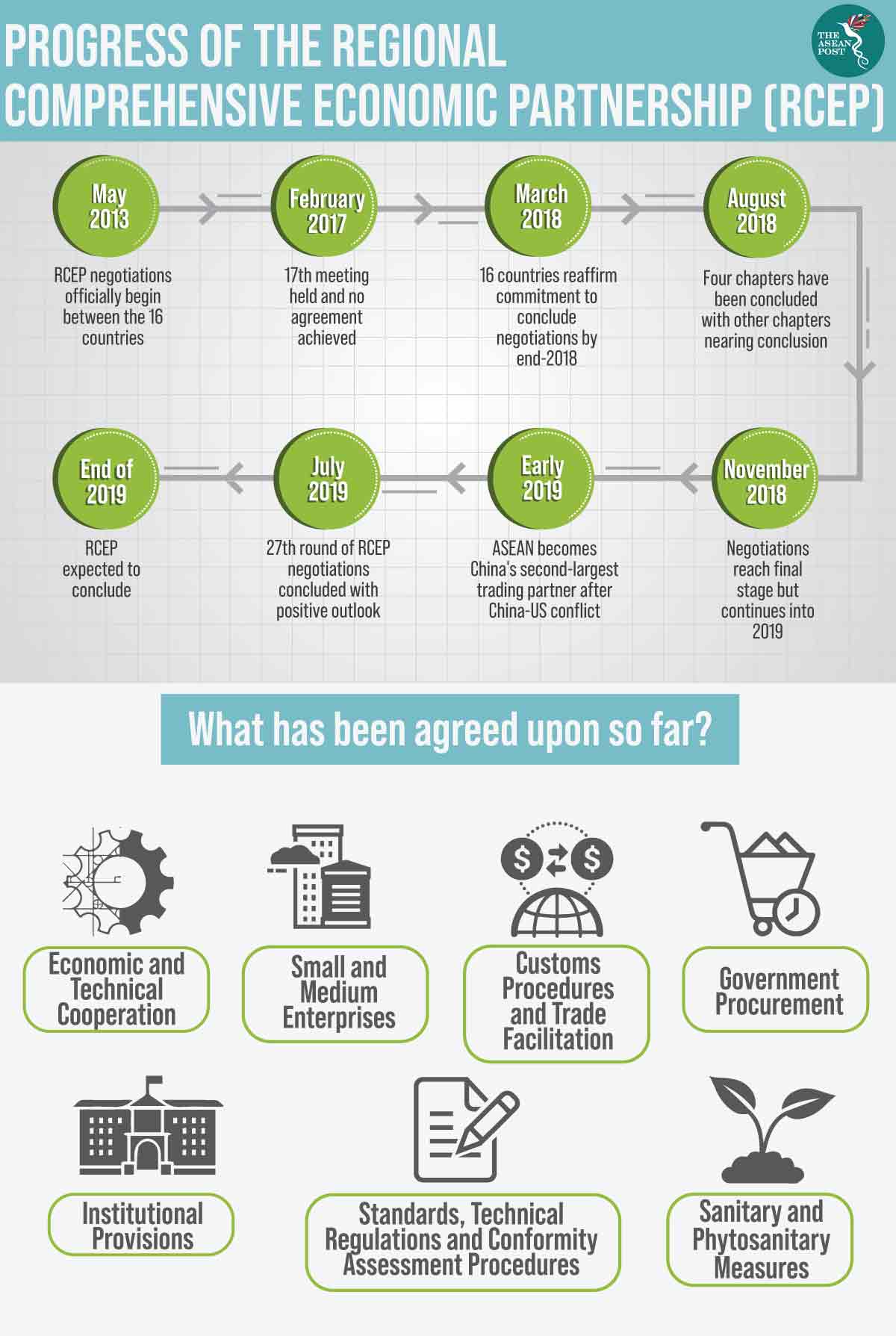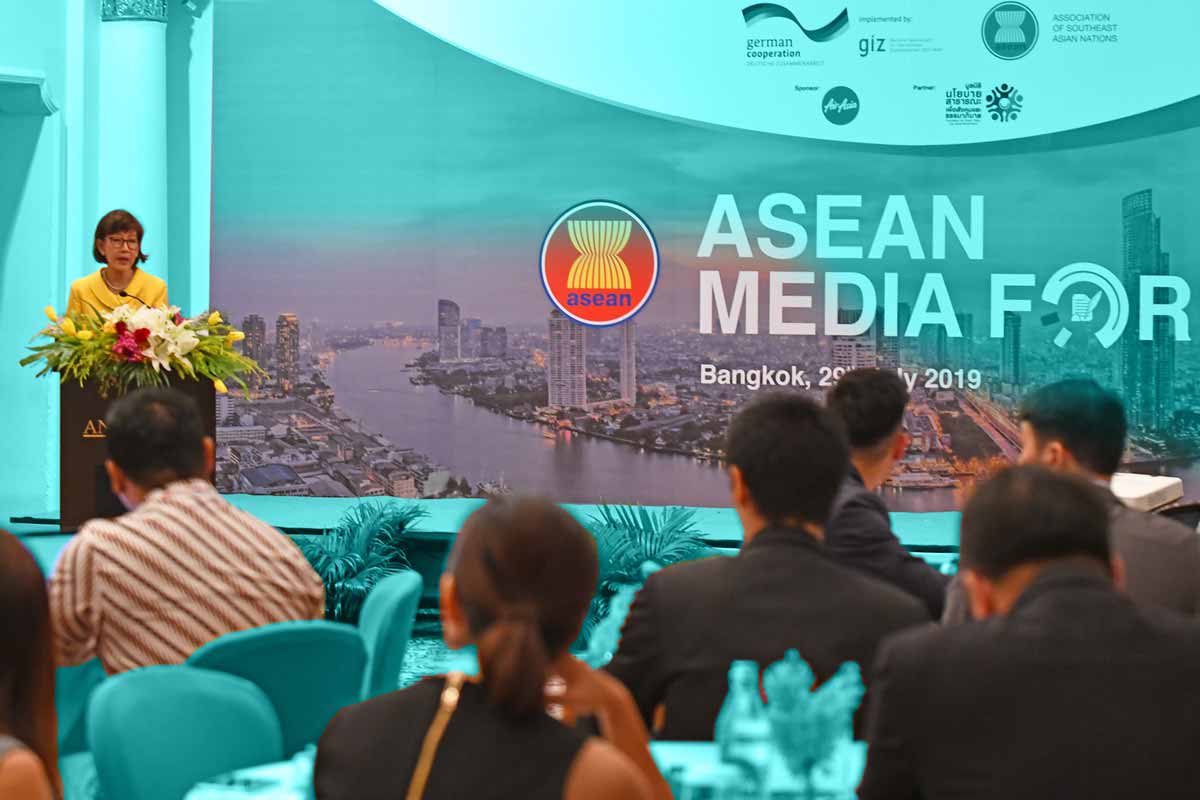The ASEAN Secretariat held its 3rd ASEAN Media Forum in Bangkok, Thailand, and brought together about 30 media leaders and prominent bloggers from the 10 ASEAN member countries to dialogue with the region’s thought leaders on vital economic issues affecting the Association. Discussions centred on global challenges, trade tensions between China and the United States (US) as well as the region’s aims and achievements at both, the international and regional levels.
The forum is part of the Secretariat’s continuous efforts to enhance its partnerships with the region’s media leaders. “The media plays a critical role in ASEAN’s regional integration process. We hope that through this ASEAN Media Forum, media leaders would be in a better position to convey the ASEAN story to the people-on-the-ground as we bring ASEAN closer to its citizens,” said the ASEAN Secretariat’s Director for Community Affairs, Lee Yoong.
Global challenges
The keynote, ‘ASEAN & Current Global Challenges’, was delivered by Pornpimol Kanchanalak, Advisor to Foreign Minister, on behalf of Don Pramudwinai, Minister of Foreign Affairs of Thailand. The keynote highlighted global issues, suggesting that solutions could come from global comprehension and efforts where ASEAN can be a contributing bloc.
She spoke on the Fourth Industrial Revolution (4IR) and how the rapid intrusion of the internet, cryptocurrencies and artificial intelligence (AI) will affect humans. “The digital seamless connectedness is capable of making many changes happen faster than the blink of an eye, both constructively and disastrously. And changes will come regardless of our readiness,” she stressed. Pornpimol also pointed out that the humanoid Sophia, an AI, has citizenship while many humans do not.
In a reference to the ongoing trade war between China and the US, Pornpimol stated that a unified ASEAN could play a role in steering the pivot from confrontation to 'co-operative rivalry' between the two global powers.
The keynote briefly underlined other global challenges including sustainable development and climate change, clean water, the wealth gap, public health, gender equality and education, urging for political will, smart cooperation and constructive partnership to resolve and make the solution sustainable.

China conflict
Dr Suthad Setboonsarng, board member of the Bank of Thailand and a specialist in ASEAN matters, delivered a presentation on ‘ASEAN response to US-China trade spat,’ explaining that the conflict has caused a decline in faith and trust in the US market while the Chinese economy has performed at a much slower phase.
Dr Setboonsarng admitted that the trade war must be resolved quickly to prevent further damage to the global economy, but said that ASEAN need not bother with the trade war between China and the US as “we should not be wasting our time worrying about those wars. We focus on what we need to do, with that we will see the solution.” He also called for ASEAN to review and strengthen global trade mechanisms and organisations to create a new environment for future economic activities.
Closer to home, tensions between ASEAN member-countries – the Philippines, Brunei, Malaysia, Vietnam – and China had erupted several times in the past as the latter claims the whole South China Sea through the nine-dash line. The Code of Conduct (COC) to manage maritime and territorial disputes in the South China Sea might, however, take more than three years to complete. The Philippines is currently the dialogue coordinator between China and ASEAN on the COC.
Digital Economy
ASEAN is working towards facilitating a regional payment system, as the digital economy becomes the next key driver for economic growth. Secretary-General of ASEAN, Lim Jock Hoi said that “as a digital economy becomes more important, more rampant, I think there is more interest in having a payment gateway.”
Lim expressed confidence in the economic health of ASEAN nations, saying that their performances “are quite positive” in spite of the current global challenges. “Investment is still coming in from within the ASEAN member states as well as from foreign direct investment. There is still a very positive trajectory,” said Lim.
He also looks forward to implementing the ASEAN Single Window and concluding negotiations for the Regional Comprehensive Economic Partnership (RCEP) by the end of this year. RCEP negotiations have been ongoing for seven years and he does not want any further extension. “We have seven years and we don’t want to go beyond that. If we don’t do it this year, it would be very difficult for us to go beyond next year. There is an urgency to see that this be concluded.”
Economic integration
A panel discussion on ‘Moving ASEAN Economic Integration Forward,’ featured Dr Hoe Ee Khor, Chief Economist of ASEAN+3 Macroeconomic Research Office (AMRO), Manu Bhaskaran, Chief Executive Officer of Centennial Asia Advisors and Dr Bandid Nijathaworn, Chairman of the Foundation for Public Policy and Good Governance and former Deputy Governor of the Bank of Thailand.
Amidst rising trade tensions and changes in the global economic structure, Dr Ee Khor said that the outlook for ASEAN integration is bright and that he was optimistic of the benefits to regional integration. The conclusion of the RCEP would reinforce the region’s strong commitment to integration and free trade.
Manu Bhaskaran, however, doubts that a broad multilateral regional integration will be easy to achieve, opting instead for “smaller coalitions of like-minded countries to try bite-sized integration.”
Bhaskaran also added that “more is needed in an era of growing protectionism and big power bullying,”; suggesting that ASEAN has to be strong and united to offer protection to all its members.
“Moreover, in an era when technology seems to favour scale, it should do more to produce an integrated single market, so that ASEAN economies are not left behind,” he said. Less-developed ASEAN economies may face challenges in term of funding, technological infrastructure and legal frameworks.
Nonetheless, ASEAN will continue to recognise their strengths and weaknesses, while collectively responding to global challenges, sustainable growth and progress in promoting peace and stability.
Related articles:
